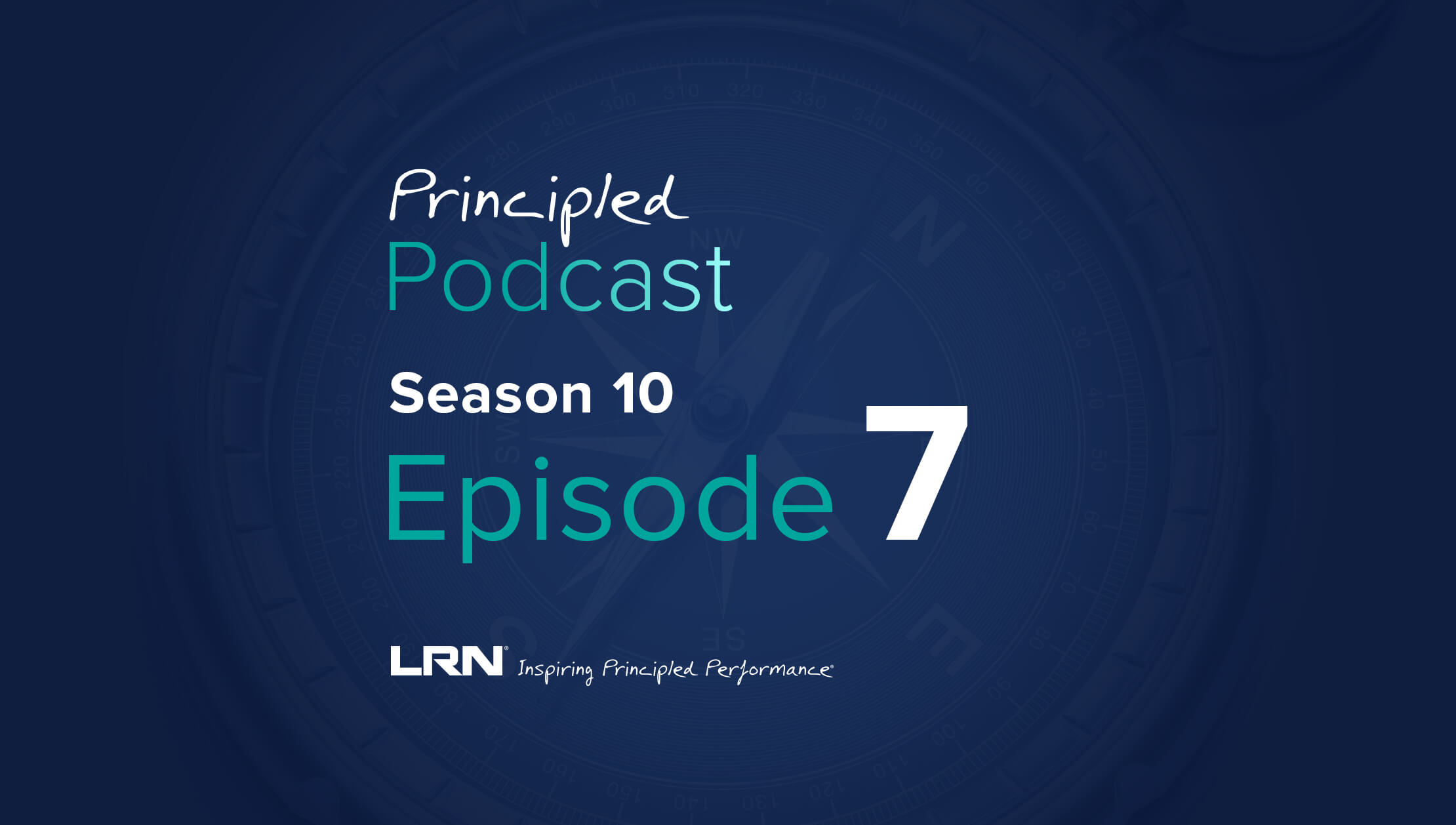There is a compelling new framework for business leaders to consider. Legal, ethics, compliance, sustainability, risk, public affairs, and government relations professionals— and executive teams and boards of directors as a byproduct—have a new tool and source of guidance to accelerate action on the governance element (''G'') in environmental, social and governance (''ESG'') programs.
Released earlier this month by the United Nations Global Compact, the SDG 16 Business Framework provides companies with guidance on strengthening business culture, ethics, and performance and supporting public institutions, laws, and systems. The framework will be discussed in depth this week during the UN Global Compact Leaders Summit. LRN Senior Advisor Susan Divers is speaking on June 16 as part of the “From Anti-Corruption to Business Integrity” panel. (Register here.)
One of the newest and most ambitious and expansive of the UN Sustainable Development Goals, the SDG 16 Action Platform was launched in 2018 to promote peace and justice and to foster strong, effective, accountable, and inclusive institutions.
Reframing governance for transformation
The new framework provides actionable steps for companies seeking to accelerate their progress and work in ESG, corporate purpose, corporate culture, compliance, and stakeholder capitalism. Included is the concept of Transformational Governance, which reframes the traditional definition of governance and comprises three interrelated dimensions:
- Conventional governance: broadening the traditional notion of corporate governance to include board and management oversight, values and culture, strategies and policies, operations, and relationships.
- Sustainable governance: strengthening governance with respect to managing environmental and social risks and opportunities.
- Global governance: inspiring businesses to contribute responsibly to public institutions, laws, and systems at the international, national, and municipal levels.
Businesses are encouraged to integrate the underlying values and principles of transformational governance to move beyond compliance to become advocates of peace, justice, and strong institutions. The Framework raises the bar for businesses to adopt an ethical and values-based approach to culture, governance, and leadership, resulting in greater shared value for the business, employees, investors, consumers, and communities.
SDG 16 includes 12 specific targets that promote peaceful and inclusive societies for sustainable development, provide access to justice for all, and build effective, accountable, and inclusive institutions. The Framework was designed to help companies to:
- Deepen understanding of the targets of SDG 16 by businesses.
- Strengthen cross-functional engagement across these targets.
- Encourage businesses to assess where they are on the transformational governance journey and to identify opportunities for improvement.
- Incorporate into board and management oversight, values and culture, strategies and policies, operations, and relationships.
Accountable to responsible business standards
The guidance presented builds upon international standards for responsible business. Businesses are encouraged to become more accountable, ethical, inclusive, and transparent by embracing the following in their internal and external activities, including throughout their supply chains.

LRN is among the business patrons of SDG 16, which also include Baker McKenzie, L'Oreal, and Nestle. LRN’s thought leadership and experience in building ethical culture, effective ethics and compliance programs, principled performance, and ethical leadership are highlighted explicitly in key SDG 16 targets. These are the targets that promote the rule of law and ensure equal access to justice; substantially reduce corruption and bribery; ensure responsible, inclusive, and representative decision making; and develop effective, accountable, and transparent institutions.
The ESG business framework for principled performance
As a special initiative of the UN Secretary-General, the UN Global Compact works with companies to align their operations and strategies with ten universal principles in the areas of human rights, labor, environment, and anti-corruption. With more than 10,000 companies and 3,000 non-business signatories based in more than 160 countries, it is the world’s largest corporate sustainability initiative.
LRN joined the United Nations Global Compact more than 10 years ago in recognition that LRN and the UN were aligned in beliefs that principled behavior is the only long-term, sustainable, and responsible strategy for leading, operating, and governing today. We were emboldened to commit—more specifically in 2019—to support Sustainable Development Goal 16 on peace, justice, and strong institutions.
LRN is aligned with other organizations supporting Goal 16 and believes good governance lies at the heart of good business. Together, we believe companies must not only ensure that their own houses are in order through enhanced corporate governance, but businesses must also support enhanced global governance: modeling ethical leadership in their organizations; tackling systemic inequalities and injustices in their supply chains; and partnering with government, civil society and others to strengthen institutions, laws, and systems, nationally and internationally.
Related resources:



